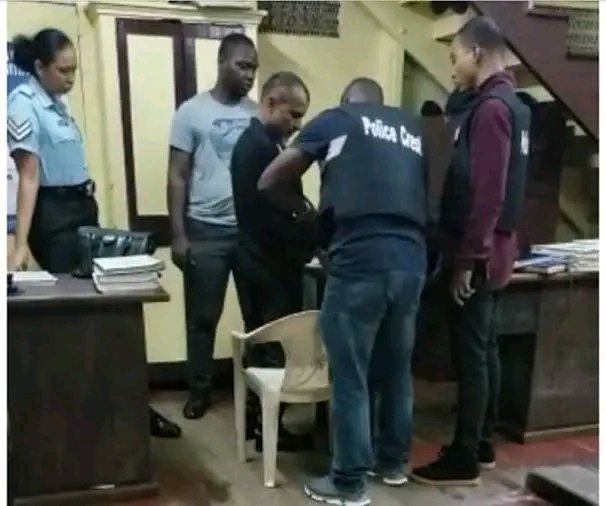
Breaking News: Guyana’s Infamous Criminal Roger Khan Passes Away in Prison

In a significant development today, Roger Khan, the notorious criminal renowned for his involvement in drug trafficking and organized crime in Guyana, has reportedly died in prison. Though the circumstances around his death remain unclear, initial reports suggest that he suffered a medical emergency while serving his sentence.
Khan gained notoriety in the 2000s for his leadership of a violent drug empire that trafficked cocaine on an extensive scale. Convicted in 2009 on a range of charges, including conspiracy to import cocaine into the United States, Khan’s criminal activities had a profound impact on Guyana’s social fabric. His reign was marked by a surge in violence and corruption, deeply influencing the country’s political landscape and law enforcement practices.
Throughout his incarceration, Khan sought to appeal his conviction, a process that has been characterized by controversy. His status in Guyanese society sparked heated debate; while many viewed him as a ruthless criminal responsible for significant suffering, others perceived him as a folk hero. Some community members pointed to his alleged efforts in combating local crime, arguing that he attempted to provide a semblance of order amidst chaos. This dual reputation underscores the complexities of crime and politics in Guyana, where issues of morality and legality often intertwine.
The news of his passing has generated mixed reactions throughout the country. Some citizens expressed relief at the death of a figure they believe contributed to widespread devastation. “Finally, justice has been served,” said one local resident, reflecting a sentiment shared by many who view Khan as a source of extreme violence and instability. On the other hand, there are those who lament the loss of a person who, in their view, had the potential to transform crime into community advocacy. This divide is indicative of the broader societal struggles faced in the context of crime, justice, and redemption.
As the government investigates the cause of Khan’s death, officials have announced that an autopsy will be conducted to ascertain details. This inquiry is vital not only for understanding the circumstances of his death but also for addressing broader questions about prison conditions, health care for inmates, and the management of notorious criminals. In a country still wrestling with the ramifications of organized crime, the arrival of Khan’s death has revived discussions about the systemic issues in the justice system.
Khan’s life was a complex tapestry of crime, power, and controversy, and as the nation reflects on his legacy, it becomes clear that his narrative is not merely about his criminal activities. Instead, it serves as a lens through which the tangled relationship between crime syndicates and communities can be examined. His absence from the criminal underworld may lead to shifts in power dynamics, influencing how organized crime operates in Guyana.
Many are currently debating what this evolution might entail for both law enforcement and criminal operations in the region. Will Khan’s passing create a power vacuum, or will it lead to new alliances among competing factions? The answers to these questions remain unknown, yet they are critical to understanding the future of Guyana’s fight against organized crime.
As the story develops, it is clear that Roger Khan’s life and death will continue to generate discussions about the themes of crime, justice, and social dynamics in Guyana. His legacy remains contentious, weaving together narratives of violence, resilience, and the ongoing struggles within the societal fabric. In a nation where crime and community often intersect, the implications of Khan’s departure will undoubtedly leave a lasting imprint on Guyanese society for years to come.





